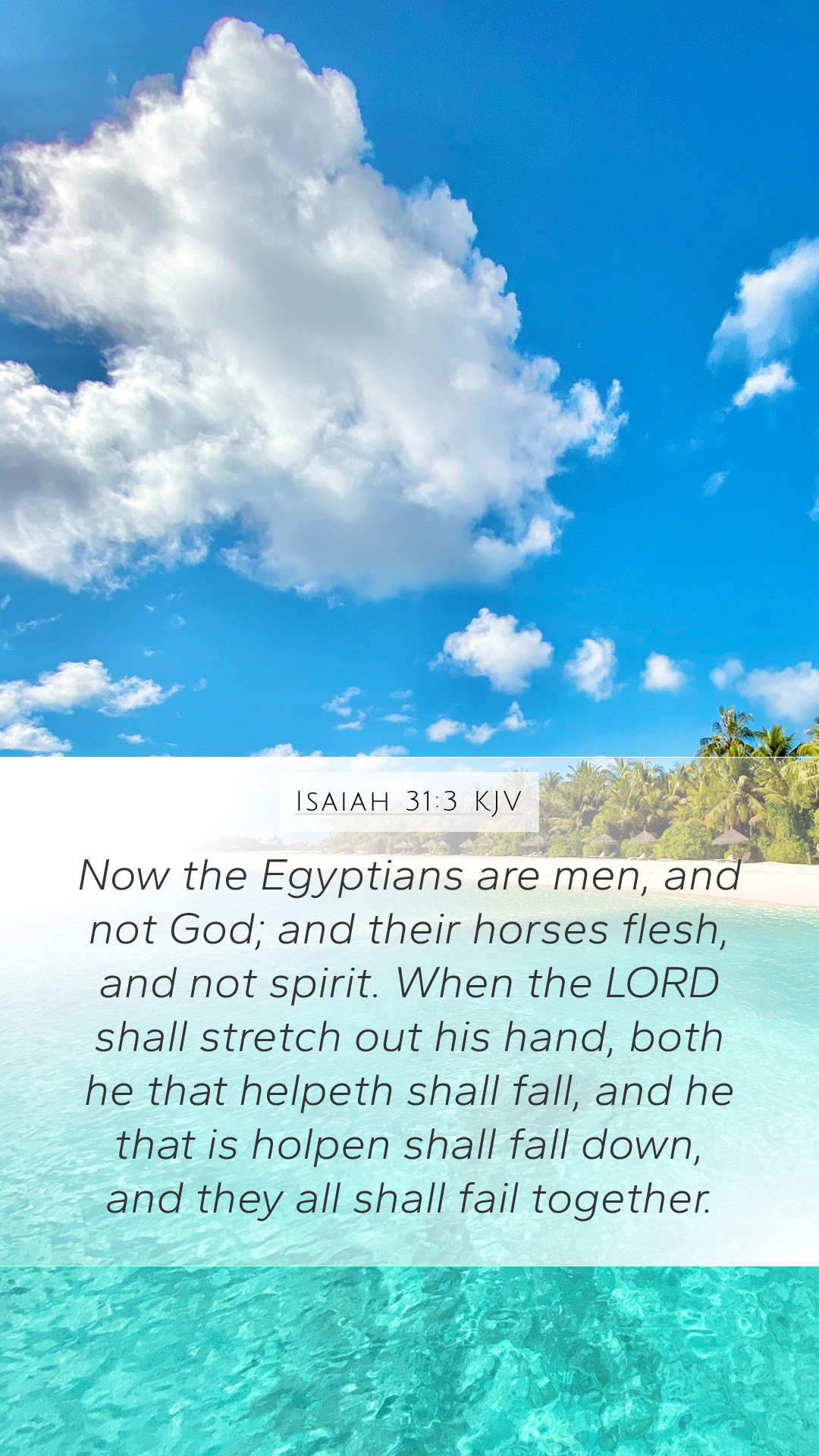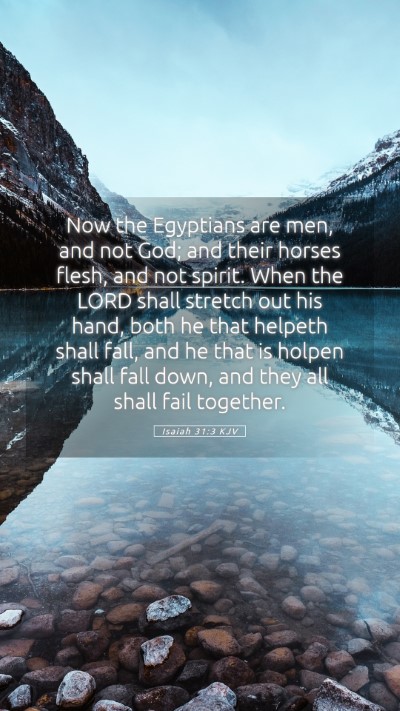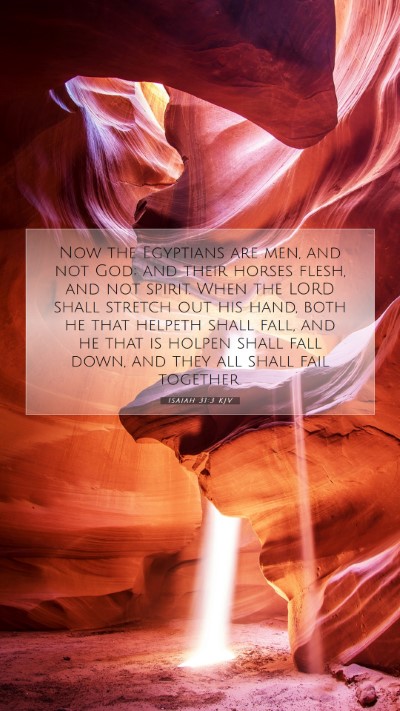Understanding Isaiah 31:3
Isaiah 31:3 states:
"Now the Egyptians are men, and not God; and their horses flesh, and not spirit: when the Lord shall stretch out his hand, both he that helpeth shall fall, and he that is helped shall fall down, and they all shall fail together."
Overview
This verse serves as a profound reminder of the limitations of human strength and the futility of relying on mere mortals, particularly in contrast to the divine power of God. The prophet Isaiah highlights the inadequacy of Egypt—representing human resources, political alliances, and military might—in providing true security and deliverance.
Verse Analysis
The key elements of this verse can be examined through various lenses:
- Human Limitations: “The Egyptians are men, and not God” implies that while Egypt may boast of its powerful army and resources, they inherently lack the divine attributes that only God possesses.
- Flesh vs. Spirit: The distinction between "horses" as flesh and not spirit emphasizes the temporal and physical nature of human strength compared to the eternal and spiritual nature of God.
- Judgment: The prophecy announces that both the helper and the helped will fall, illustrating the inevitability of collapse when one relies on human power instead of divine assistance.
Bible Verse Commentary
Drawing on insights from noted public domain commentaries:
Matthew Henry Commentary
Henry emphasizes the folly of trusting in human efforts and alliances that cannot deliver. He points out that, despite Egypt's apparent might, when challenged by God’s will, even the strongest will falter.
He further notes that this verse serves as a wake-up call to those placing their hope in earthly powers, encouraging believers to place their trust in God alone.
Albert Barnes' Notes on the Bible
Barnes elaborates on the context surrounding this verse, particularly the Israelite dependence on Egypt for military help against Assyria. He warns that such reliance is misplaced, as God is the ultimate source of strength and protection.
Barnes reiterates the message that all who seek help in human strength will find it inadequate, as God's power supersedes all other forces.
Adam Clarke's Commentary
Clarke provides an in-depth historical context, explaining the relationship between Israel and Egypt during this period. He emphasizes the prophetic warning that reliance on the arm of flesh leads to despair, as earthly help is subject to failure, while God’s aid is guaranteed and eternal.
Theological Implications
The message of Isaiah 31:3 profoundly impacts our understanding of trust and reliance in theological contexts. Key implications include:
- Faith in God: Believers are reminded to cultivate a faith that looks to God above all else for help and deliverance.
- Call to Wisdom: The understanding of Scripture leads us to value divine wisdom over worldly wisdom, championing a heart posture that seeks God rather than human assistance.
- Assurance in God’s Sovereignty: The verse reassures that God’s plans will prevail despite the failures of human alliances and ambitions.
Applications for Believers
In applying Isaiah 31:3 to daily life, consider the following:
- Evaluating Trust: Assess where you place your trust in times of need. Are you relying on people or circumstances, or are you looking to God?
- Encouraging Others: Use this verse in discussions within Bible study groups to encourage others to find their confidence in God's faithfulness.
- Prayer for Dependence: Seek God’s guidance in prayer, asking Him to strengthen your faith and help you turn from reliance on the temporal.
Cross References
Related Bible verses that echo the themes of Isaiah 31:3 include:
- Psalms 146:3: "Put not your trust in princes, nor in the son of man, in whom there is no help."
- Jeremiah 17:5: "Cursed be the man that trusteth in man, and maketh flesh his arm."
- Psalm 20:7: "Some trust in chariots, and some in horses: but we will remember the name of the Lord our God."
Conclusion
Isaiah 31:3 serves as a vital scripture for understanding the nature of divine versus human aid. In our scriptures analysis, we draw powerful lessons on the importance of faith in God. By embracing the insights from established commentaries like those of Matthew Henry, Albert Barnes, and Adam Clarke, we find deeper meaning that can transform our spiritual walk. This verse becomes a call to reflect our reliance on God in our lives, solidifying our commitment to depend solely on His eternal strength.


